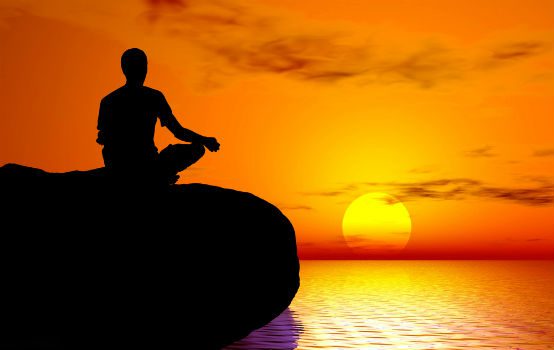The Inflexible Dogma of ‘Spiritual But Not Religious’

I grew up on what most Americans would consider the far left: my family didn’t care that I was bisexual, learning was important but school less so, and, perhaps most significant, I was nominally without religion. My mother always told me we were “spiritual, not religious,” having grown up Catholic herself. We prayed not to God but to “The Universe,” and shunned any mode of thought that challenged us to do something according to a text. When I told my mother at a very young age that I was interested in reading the Bible, she set me against it. “It’s too scary,” she said.
“It’s too scary” has, frighteningly enough, become the credo of the American far left in relation to reality. It wasn’t until I broke away from my amorphous childhood “non-religion” in 2012 that I would discover this. Our psychic-revering, crystal-healing, reiki-practicing, dance-filled spiritual approach may not have a church, but God help you if you leave it. The falling outs I had with my friends, many of whom, it turns out, felt close to me because I had essentially converted them, were brutal. My mother hadn’t raised me in a vacuum—her erstwhile Catholic family is filled with siblings, and the ones who followed this non-religion are no longer speaking to me.
For a long time, I thought this was personal. I’d had some truly bad luck with a few New Age extremists who happened to also be part of my bloodline, but, I thought, that wasn’t because the ideas were bad. New Age itself was fine. The emerging political left’s insistence on astrology and acupuncture and juice cleanses and other “healing” or “wellness” practices wasn’t the problem.
Yet as these spiritual beliefs started to become more pervasive in mainstream society, with non-Hindus dropping “chakras” into casual conversation and Mercury Retrograde a fine scapegoat for miscommunication and technological blips, I started to notice that these weren’t just spiritual ideas we were talking about. The widespread acceptance of New Age dogma came alongside logically consistent but socially destructive ideas, one of which was that we all inhabit different realities, that there is no objective truth we should be striving to discover and challenging ourselves and each other to reach. If something seems like the right course of action for you to take, it’s because it resonates with you, though it may not necessarily resound with me.
No dedicated practitioner of any religion believes that reality exists in our own heads. Certainly our perceptions color everything, but the miracle of the world is that it exists outside of our limited human faculties, our inevitably distorted ideas. We have a moral responsibility to guide one another towards reality as it is. For too many people on the left, the notion that they aren’t immediately entitled to the reality they choose for themselves is—and they use this word—fascist.
I’ve come to seek reasons for the actions I take, not validation for the feelings I get after taking them. New Age thought is spiritually bereft in large part because it isn’t founded on a sacred text. During the 1980s, books like Jose Arguelles’s The Mayan Factor and the “channelings” of the allegedly wise extraterrestrials that composed Bringers of the Dawn assisted wide-eyed seekers like my mother in forming a framework for her amorphous approach to “connecting with the Source.” But because there’s no prescribed way to do anything, no canonical text to tell you how, and because this made-up religion is brand new, we have no history of scholarship to analyze and interpret alongside scripture.
When I read statistics that cite “spiritual, not religious” as the fastest growing religious identity among those my age and younger, I feel deeply sad. I watch these same people grin for their Instagram captures and look down sourly when the camera turns away; I know they’re crying out for something deeper, something that’s uncool to want. I want to help guide them to whatever that is, but I’m still searching myself.
Most Millennials, and whatever we’ve decided to call the generation after, are not feeling good about where they are. Social media has created a compulsion to compare oneself. This impulse is so ferocious that no one seems to know what they themselves actually want anymore—ironic in a culture so steeped in personal feelings of supposed fulfillment. We read about anxiety and depression rates that have skyrocketed among the young. I’ve read devastating accounts in Internet forums of teenagers who are pouring their hearts out online because they can’t really talk to the people they call their friends. The responses? A mournful unending echo. “I feel you.” “Me neither.” “Yeah, I get you.” “Dude, I know.”
These people—taught their entire lives that their desires, their feelings, their passions, their childhood dreams, are what matter—have become sick of themselves. They don’t want themselves anymore. They want God.
But there’s no way to tell that to a liberal parent.
Sarah Neilson is a New Orleans native who has lived all over the country. She writes plays, screenplays, fiction, and the occasional essay.
Comments